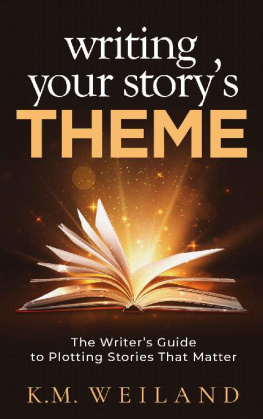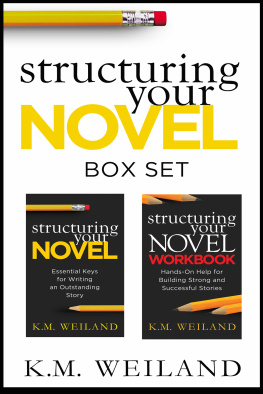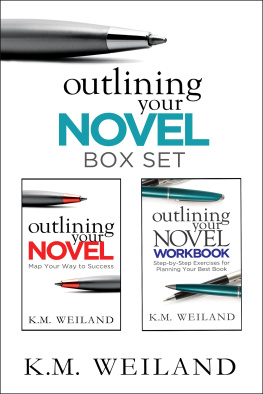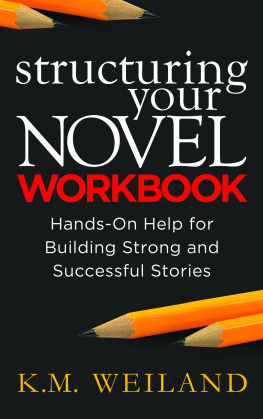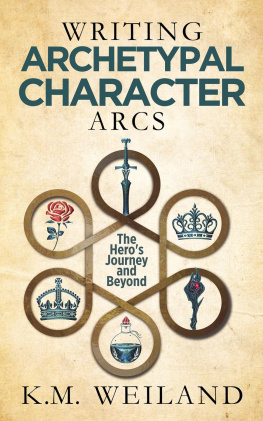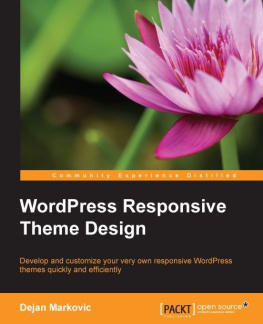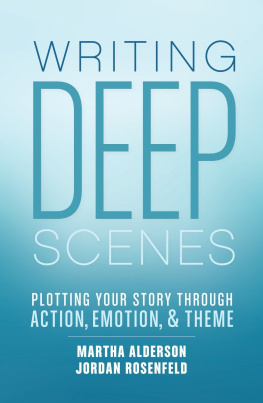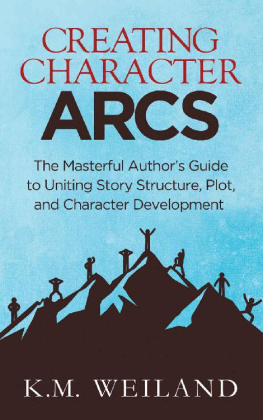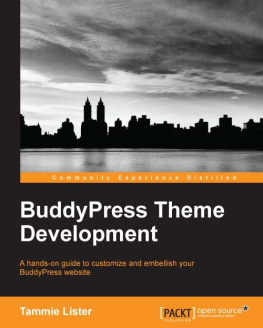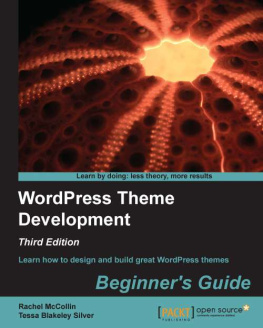Contents
WRITING YOUR STORYS THEME
K.M. Weiland
PenForASword Publishing

Get a free copy of acclaimed author K.M. Weilands guide to advanced story structure techniques.
Click here to get started:
https://www.kmweiland.com/get-your-free-guide/
Theme Is What Your Story Is Really About
Themethe mysterious cousin of plot and character. Too often viewed as abstract rather than actionable, theme is frequently misunderstood and left to chance. Some writers even insist theme should not be purposefully implemented. This is unfortunate, because in many ways theme is story. Theme is the heart, the meaning, the point. Nothing that important should be overlooked.
Powerful themes are never incidental. They emerge from the conjunction of strong plots and resonant character arcs. This means you can learn to plan and implement theme. In doing so, you will deepen your ability to not only write stories that entertain, but also stories that stay with readers long after the end.
Writing Your Storys Theme will teach you:
- How to create theme from plot and character.
- Why every supporting character and subplot should enhance the theme.
- How to prevent theme from seeming preachy or on the nose.
- What to consider in identifying the best theme for any given story.
- And much more!
Conscious mastery of theme will elevate every story you write and allow you to craft fiction of depth and meaning.
Take Control of Your Story Via a Powerful Implementation of Theme
Introduction
Plot = Character = Theme
ONCE UPON A time, Character fell in love with Plot. Right from the start it was a stormy relationship. There was passion, there was romance, there were epic stakes. Sometimes they were pretty sure they couldnt live with each other a moment longer. Sometimes they tried to give each other up altogether. But even the most resolute intentions couldnt keep them apart for longer than a lukewarm novel or two. Inevitably, these star-crossed lovers always reunited, their reincarnations seeking each other out again and again through the ages.
They never seemed to realize Theme watched them from afar, love largely unrequited. During all the glory days when fans fervently debated Plot versus Character, Theme was the one who secretly made the relationship work. Toiling silently behind the scenes, Theme kept pushing Plot and Character together, even when they thought they hated each other. Theme gave meaning to their union. Theme made them a team.
And so goes the greatest love triangle in all fiction.
***
Like some new chicken-and-egg debate, writers frequently weigh the respective merits of plot and character. Which came first? Which is more important? Which is the hallmark of the truly great stories?
This debate, however, is a false paradigm.
For starters, its a dilemma with no conclusive answer, since character-driven fiction offers one array of fictional techniques and plot-driven fiction another, both equally valid. Even more importantly, this type of either/or questioning tends to ignore the fact that character and plots relationship is part of a larger trianglecrowned by none other than wispy, metaphysical, powerful, unavoidable theme.
Why is theme so often excluded from the grand tug of war between plot and character?
There are a couple reasons.
The most obvious is simply that writers often dont view theme in the same category as plot and character. Plot and character are concrete pieces of story, while theme seems more abstract. Plot and character are almost always discussed in terms of technique: This is how you do it, kids... Theme, on the other hand, is often referenced with vague hand gestures: Oh, you know, it just sort of happens...
Some authors turn this principle of Thematic Vagueness into a kind of religion. When eager new writers look on high for answers about theme (How do I write a story with a strong theme?), the responses are adamantly mysterious (Thou shalt never write theme on purpose).
The mysteriousness arises from a poor comprehension of how theme functions and interacts with other major story components. Because poorly executed themes are often those that are most obvious and on the nose, writers sometimes scare themselves off the subject altogether. We evolve from a healthy fear of preachy themes to an irrational avoidance of theme altogether.
Its true that powerful, cohesive themes sometimes emerge naturally from a writers unconscious. But whats even truer is that these seemingly instinctive themes emerge thanks to the authors intentional understanding and use of those other storytelling titans: plot and character.
There lies the secret. If you can execute your plot and character arcs with understanding and intention, youre this close to extending that consciousness to theme itself. No more hoping and praying your unconscious talks to you in a way you understand well enough to transcribe. No more confusion about why your excellent plot and awesome characters sometimes refuse to play nice and combine into an equally amazing story. No more worrying that readers will find your story soulless or (just as bad) a self-righteous sermon.
Instead, you can bring theme out of the mists and let it work in the daylight, allowing it to guide your every story decision.
In my opening allegory, I cast plot, character, and theme as a triangle. But perhaps a more helpful figure is that of a circlerepresenting the unending, regenerative relationship of fictions Big Three.
Plot, character, and theme are not individual, isolated aspects of story. As such, they cannot be developed in isolation. Rather, they are parts in a larger symbiosis.
Theme isnt just a nice greeting-card sentiment randomly mouthed by the protagonist at some point. Rather, theme creates character, which in turn creates plot, which brings the circle all the way around and, in turn, generates theme, which creates character which creates plot which creates... ad infinitum.
Honestly, I geek out just thinking about it. Theme is meant to represent unifying patterns found within a larger whole, which means that even on a meta level, it makes total sense that theme is both generative and receptive in its relationship to plot and character.
In his classic The Art of Fiction , instructor John Gardner wrote:
Theme is not imposed on the story but evoked from within itinitially an intuitive but finally an intellectual act on the part of the writer.
What this means is that you, the writer, have the ability to start with any one of the Big Three and use it to create cohesive manifestations in the other two. If you begin with a plot idea, then character and theme will already be inherent seeds within that kernel. If you begin with character? Same deal. And if you begin with theme? Ah, no more worries about preachiness. You now have the ability to craft powerful messages that are shown via your plot and character, rather than told to readers.
At some point, once you become accustomed to looking at plot, character, and theme as three faces of a greater whole, it becomes difficult to extricate one from the other enough to even identify which occurred to you first.
As a storyteller, your end goal should be a uniform big picture for readers. One of the most useful processes for reaching that goal is, in fact, mentally breaking down the larger picture and keeping its specific parts separate within your own mind. This alone will dispel the haze of ambiguity surrounding theme. Once you can see what each major piece of the story is and is not, you will have a better understanding of how they relate to and impact one another.

